JPMorgan sees U.S., global recession this year if tariffs sustained
Catch up on the top industries and stocks that were impacted, or were predicted to be impacted, by the comments, actions and policies of President Donald Trump with this daily recap compiled by The Fly:
SWEEPING TARIFFS:
On Wednesday, President Trump announced that the U.S. will be imposing sweeping “reciprocal” tariffs, calling it “Liberation Day” in a speech from the Rose Garden. The President is imposing a minimum 10% tariff on all imports entering the U.S., in addition to other tariffs. Recall, his 25% tax on imported cars and auto parts is set to start today, April 3rd. Last month, Trump reinstated a 25% tariff on imported steel and aluminum, and threatened to slap a 200% tariff on European alcohol.
According to a statement from the White House, President Donald Trump “declared that foreign trade and economic practices have created a national emergency, and his order imposes responsive tariffs to strengthen the international economic position of the United States and protect American workers.” Using his IEEPA authority, President Trump will impose a 10% tariff on all countries, taking effect April 5, 2025, and will impose an individualized reciprocal higher tariff on the countries with which the United States has the largest trade deficits. All other countries will continue to be subject to the original 10% tariff baseline. This will take effect April 9, 2025 at 12:01 a.m. EDT. These tariffs will remain in effect until such a time as President Trump determines that the threat posed by the trade deficit and underlying nonreciprocal treatment is satisfied, resolved, or mitigated.”
President Donald Trump also signed an Executive Order eliminating duty-free de minimis treatment for low-value imports from China, a “critical step in countering the ongoing health emergency posed by the illicit flow of synthetic opioids into the U.S.” Following the Secretary of Commerce’s notification that adequate systems are in place to collect tariff revenue, President Trump is ending duty-free de minimis treatment for covered goods from the People’s Republic of China and Hong Kong starting May 2, 2025 at 12:01 a.m. EDT.
GLOBAL RECESSION:
JPMorgan global economist Nora Szentivanyi believes President Trump’s “remarkably large and broad-based hike” in U.S. tariffs threatens both a U.S. and global recession. Starting April 5, there will be a minimum 10% tariff on all goods imports coming into the U.S., but effective tariff rates are set to rise more sharply on April 9 against a broad set of the country’s trading partners, the economist tells investors in a research note. JPMorgan believes the “large” 20% tariff imposed on the European Union today “represents the most significant incremental shock to the global outlook.” If implemented, the effective U.S. tariff rate will likely approach a 25% rate, contends the firm. It views the full implementation of these policies as a “substantial macroeconomic shock.” These policies, if sustained, would likely push the U.S. and global economy into recession this year, according to JPMorgan.
INTERNET SECTOR:
BofA notes that President Trump’s newly announced tariffs were larger than anticipated and are “a direct negative” for discretionary retail sales and advertising. In addition, the potential for increasing recession fears fueled by the tariffs are “a relative negative for the entire Internet sector,” which the firm notes underperformed in 2008 and 2022 as fears of a recession grew. The “only potential silver lining” is that proposed rates could be viewed as a negotiation tool that may not be fully implemented, adds BofA. Stocks mentioned in the report include Amazon (AMZN), Booking (BKNG), eBay (EBAY), Meta (META), Pinterest (PINS), Reddit (RDDT), Snap (SNAP), Take-Two (TTWO) and Uber (UBER).
DIGITAL ADVERTISING:
Following Wednesday’s tariff announcement, Oppenheimer is estimating the revenue exposure of each company in the firm’s coverage universe to tariffs and related economic weakness, using company revenue disclosure and GDP. Meta (META) at 16% and Alphabet (GOOG) at 15% are the most exposed to advertiser weakness, while Uber (UBER) has economic exposure but will not face direct tariffs, the firm says. Oppenheimer sees Netflix (NFLX), Spotify (SPOT), Instacart (CART), Match Group (MTCH), Compass (COMP), Similarweb (SMWB), and Fiverr (FVRR) as having almost no exposure. While there is 8%-10% geographic exposure for Amazon (AMZN) and Etsy (ETSY), there are a lot of substitutions available operating marketplace models and the potential removal of the de minimis exemption would become a tailwind, hurting China-based competition. However, all digital advertising would be impacted from a slower economy as a result of tariffs, the firm argues.
IT HARDWARE:
Morgan Stanley calls reciprocal tariffs “calamitous” to IT Hardware makers given nearly all such hardware products sold into the U.S. are now subject to 25%-54% import tariffs, including Apple (AAPL) iPhones. Apple, Cricut (CRCT), Dell (DELL), Garmin (GRMN), GoPro (GPRO), HP Inc. (HPQ), Logitech (LOGI) and Sonos (SONO) all rely on extensive international manufacturing, with the large majority of finished goods sold into the U.S. assembled in South East Asian nations, making them worst positioned, the firm tells investors. For Apple, Morgan Stanley estimates the added tariff cost could amount to over $33B annualized, or 26% of FY25 EBIT. For Dell and HP, the added tariff cost could equate to nearly the entirety of their expected net income in 2025, the firm added. Among the group, companies such as IBM (IBM), Teradata (TDC), NCR Voyix (VYX), Ingram Micro (INGM) and CDW (CDW) could be more insulated from reciprocal tariffs given little direct manufacturing exposure, though all may face second-order effects from slowing growth, Morgan Stanley says.
SOFTLINES:
Morgan Stanley says President Trump’s new reciprocal tariffs came in “worse than anticipated across-the-board,” with Vietnam most meaningful for Softlines stocks and China/Vietnam for Hardlines. In Softlines, China tariffs were “partially priced in, but Vietnam tariffs were not,” weighing on stocks with higher exposure, says the firm, which scorecard suggests Amer Sports (AS), Bath & Body Works (BBWI), Levi Strauss (LEVI), Nike (NKE), and Tapestry (TPR) as “potentially best positioned” and views Torrid (CURV) and Warby Parker (WRBY) as “possibly worst.”
APPAREL:
Evercore ISI says the Trump tariff plan revealed yesterday “puts a much higher tariff burden on Softlines brands than we expected.” While the roughly 21% incremental China tariff is “bad,” Vietnam is a bigger sourcing hub, making the 46% tariff on Vietnam “a far bigger issue than expected,” the firm added. Among the apparel and footwear group, the firm views Gap (GAP), On Holding (ONON), Lululemon (LULU) and Deckers Outdoor (DECK) as “worst positioned,” largely due to Vietnam sourcing. Evercore calls out Birkenstock (BIRK) and PVH Corp. (PVH) as among the “best positioned” apparel makers. Nike (NKE) has “a lot of issues to solve to turn its brand around right now,” but the company has “the best chance at negotiating a deal with the Trump administration as a big U.S. employer” and Nike’s scale makes it more important to retailers during a downturn, the firm added.
BEAUTY, HEALTH AND WELLNESS:
After President Trump yesterday announced universal tariff increases across all foreign imports, Canaccord told investors that among the firm’s beauty, health, and wellness coverage that Elf Beauty (ELF) continues to be the most exposed due to its reliance on China manufacturing. With an effective 54% rate expected from Chinese imports, the firm estimates an over 60c EPS headwind to annualized earnings if unmitigated when comparing estimated impacts from a baseline 25% tariff rate on Chinese imports. Canaccord also expects Helen of Troy (HELE) to be exposed due to their manufacturing exposure to China and their near-shoring initiatives to Mexico and due to 20% tariffs on European-imported goods it believes fragrance company Interparfums (IPAR) is now exposed as well, the firm tells investors. Other covered companies include Beachbody (BODI), Coty (COTY), Estee Lauder (EL), Edgewell (EPC), Grove Collaborative (GROV), Kenvue (KVUE), Nature’s Sunshine (NATR), Olaplex (OLPX), Prestige (PBH), Perrigo (PRGO), Peloton (PTON), Sally Beauty (SBH), Beauty Health (SKIN), Ulta (ULTA) and Waldencast (WALD).
SEMI STOCKS:
Citi says views President Trump’s tariffs on Taiwan, South Korea, China, Vietnam, and all other imports as “convoluted and virtually impossible to assess completely” given the length and geographic diversity of the semiconductor supply chain. However, if the tariffs cause a recession, it would be negative for all semi stocks and could result in at least 20% more downside, the firm tells investors in a research note. Citi notes that high-end analog companies such as Analog Devices (ADI) and Texas Instruments (TXN) have historically outperformed in a downturn and would expect the same to happen in a recession with Analog Devices being its top pick due to higher margins. Stocks most at risk in a recession are lower-margin companies.
ALUMINUM CANS:
Citi highlights a CNBC report that the Trump administration will implement a 25% tariff on all imported canned beer and empty aluminum cans starting on Friday, according to the Department of Commerce. Tariffs could be incrementally negative for Ball Corp. (BALL) and Crown Holdings (CCK), with can-making operations close to the border in Monterrey, Mexico, that are dependent on beer imports, the firm tells investors in a research note. Citi says glass containers were not included in the Department of Commerce report, at this time, implying potential upside for O-I Glass (OI) as the company operates a sizable joint venture with Constellation Brands (STZ). Conversely, tariffs on imported glass containers could have been a positive catalyst for O-I Glass to curtail imports from Asia, adds the firm.
Morgan Stanley notes that in addition to the reciprocal tariff plan announced yesterday afternoon, the Trump administration has expanded tariffs on aluminum to include beer and empty aluminum cans. Ball stands to be most negatively affected compared to peers Crown Holdings and Ardagh Metal Packaging (AMBP) in the short-term given its supplier relationship with Constellation Brands, the firm tells investors. Morgan Stanley has Overweight ratings on Ball and Crown and an Equal Weight rating on Ardagh.
GLOBAL TOBACCO:
President Trump’s new tariffs on U.S. imports, including a 10% baseline tariff on imports from all countries, should be “manageable” for global tobacco companies, UBS tells investors in a research note. At the same time, the firm says the broader impact from the tariffs could be negative for the U.S. consumer, which could continue to negatively impact U.S. cigarette volumes, though economic uncertainty is likely to continue to benefit the defensiveness and low volatility of the tobacco sector, resulting in the continued outperformance of the tobacco sector. Publicly traded companies under the firm’s coverage include Altria (MO), BAT (BTI), Imperial Brands (IMBBY), and Philip Morris (PM).
STEEL COMPANIES:
President Trump’s “Liberation Day” tariffs, including 10% tariffs for all countries and additional reciprocal tariffs across 185 countries, are an “incremental negative” for U.S. steel companies on greater demand concerns, UBS tells investors in a research note. The additional, larger than expected tariffs bring a greater risk of demand destruction, though there is scope of negotiation and roll backs, the firm says, adding that there is also no incremental tariff on autos beyond the 25% announced previously, which could reduce North America steel production by 1.5M units. The firm maintains Buy ratings on Steel Dynamics (STLD) and Nucor (NUE) and a Sell rating on Posco (PKX).
RETALIATION:
France is pushing for the EU to retaliate against U.S. tech companies in response to President Donald Trump’s tariffs, Bloomberg’s William Horobin and Nayla Razzouk report. The EU is considering using its anti-coercion instrument to strike back against the U.S., with French government spokeswoman Sophie Primas saying responses could be ready by the end of April. The issue of taxing digital services has split the EU in the past, with some countries like France and Italy implementing national taxes, while others like Germany have opposed the idea, Horobin and Razzouk write.
TIKTOK:
U.S. President Donald Trump is expected to announce plans for a new company to be known as TikTok America, as part of his attempts to reach a deal to keep the video streaming app alive in the U.S., The Information’s Kaya Yurieff reports, citing a person close to the discussions. It is not yet clear whether the White House has approval for the proposed structure of such an arrangement from China, the author says. Under the president’s proposal, TikTok America would be approximately 50% owned by new U.S. investors and license the platform’s algorithm from ByteDance, the author says, noting that existing ByteDance investors would have a roughly one-third interest, while ByteDance itself would retain a 19.9% stake. Companies reportedly aiming to buy TikTok or invest in a U.S. version of it include Amazon (AMZN), AppLovin (APP), Meta (META), Microsoft (MSFT), and Oracle (ORCL).
Meanwhile, AppLovin has become the latest bidder of TikTok, CNBC’s David Faber said during “The Exchange.” They are in negotiations and the Trump Administration is fully aware of their interest, Faber says, citing sources familiar with the situation. Unlike Amazon, Meta, Microsoft or Oracle, they would not have the ability to host the server; they will likely include a hosting deal that is already in place with Oracle, he adds. Faber further notes that the Chinese likely not allowing TikTok’s algorithm to be part of the deal and the acquirer would have to recreate it over some period of time. TikTok’s valuation in deal is hard to predict, specially without the algorithm, he points out.
LAWSUIT HALTED:
This week, the Federal Trade Commission halted its lawsuit against pharmacy-benefit managers CVS Caremark (CVS), Express Scripts (CI), and Optum (UNH) over insulin prices after President Donald Trump fired two of the agency’s commissioners, the Wall Street Journal’s Dave Michaels and Joseph Walker report. The agency said it needs to pause the litigation because no current commissioners can participate in the case, the authors note.
MUSK TO STEP BACK:
President Donald Trump has told his inner circle that Elon Musk will be stepping back in the coming weeks from his current role, Rachael Bade of Politico reports, citing three Trump insiders. Trump remains pleased with Musk and his Department of Government Efficiency initiative, but both men have decided in recent days that it will soon be time for Musk to return to his businesses and take on a supporting role, according to Bade.
—
Originally Posted April 3, 2025 – Trump Trade: U.S. President announces sweeping new tariffs
Disclosure: Interactive Brokers Third Party
Information posted on IBKR Campus that is provided by third-parties does NOT constitute a recommendation that you should contract for the services of that third party. Third-party participants who contribute to IBKR Campus are independent of Interactive Brokers and Interactive Brokers does not make any representations or warranties concerning the services offered, their past or future performance, or the accuracy of the information provided by the third party. Past performance is no guarantee of future results.
This material is from The Fly and is being posted with its permission. The views expressed in this material are solely those of the author and/or The Fly and Interactive Brokers is not endorsing or recommending any investment or trading discussed in the material. This material is not and should not be construed as an offer to buy or sell any security. It should not be construed as research or investment advice or a recommendation to buy, sell or hold any security or commodity. This material does not and is not intended to take into account the particular financial conditions, investment objectives or requirements of individual customers. Before acting on this material, you should consider whether it is suitable for your particular circumstances and, as necessary, seek professional advice.
Disclosure: Futures Trading
Futures are not suitable for all investors. The amount you may lose may be greater than your initial investment. Before trading futures, please read the CFTC Risk Disclosure. A copy and additional information are available at the Warnings and Disclosures section of your local Interactive Brokers website.
Disclosure: ETFs
Any discussion or mention of an ETF is not to be construed as recommendation, promotion or solicitation. All investors should review and consider associated investment risks, charges and expenses of the investment company or fund prior to investing. Before acting on this material, you should consider whether it is suitable for your particular circumstances and, as necessary, seek professional advice.



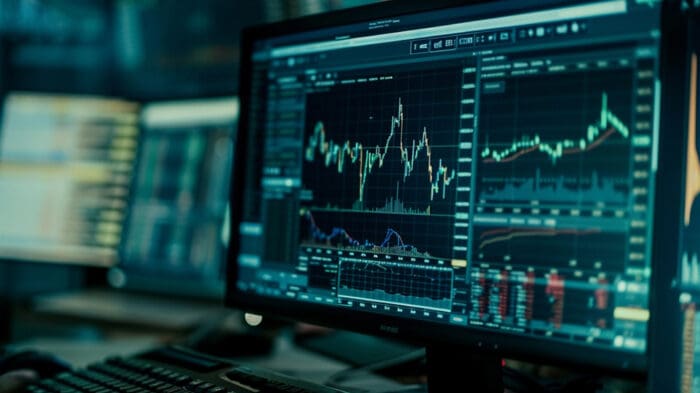

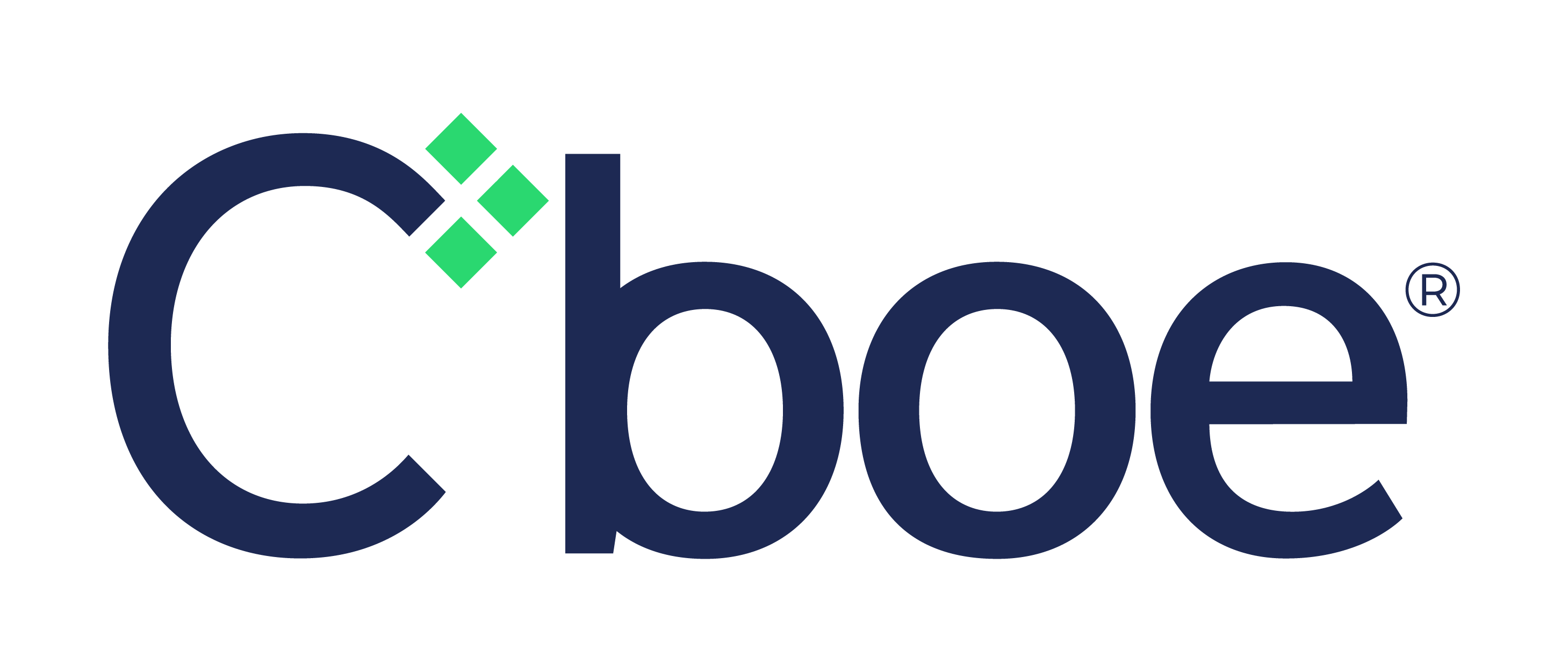


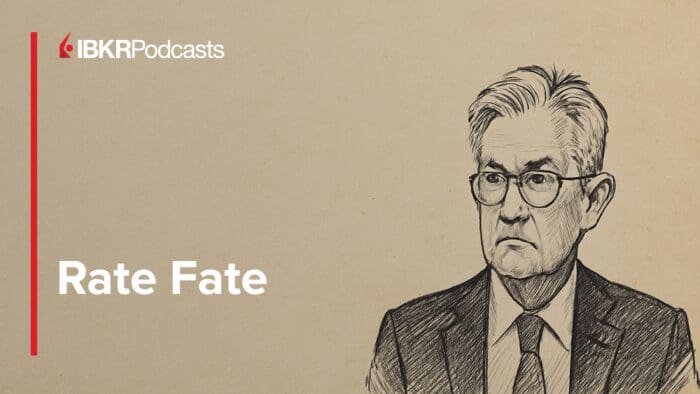




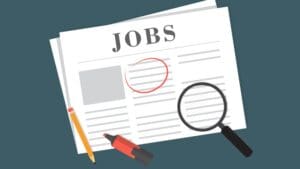
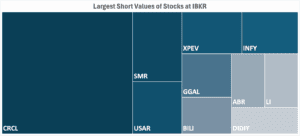

Join The Conversation
If you have a general question, it may already be covered in our FAQs page. go to: IBKR Ireland FAQs or IBKR U.K. FAQs. If you have an account-specific question or concern, please reach out to Client Services: IBKR Ireland or IBKR U.K..
Visit IBKR U.K. Open an IBKR U.K. Account